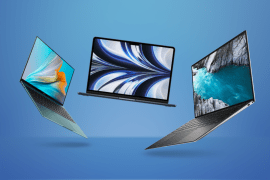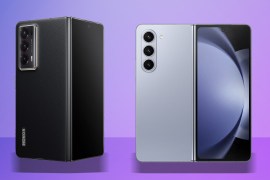Amazon Kindle vs Kobo Touch
Like Rocky Balboa preparing to take on Ivan Drago, the Kindle has got in shape for its toughest fight yet – can it go the distance?
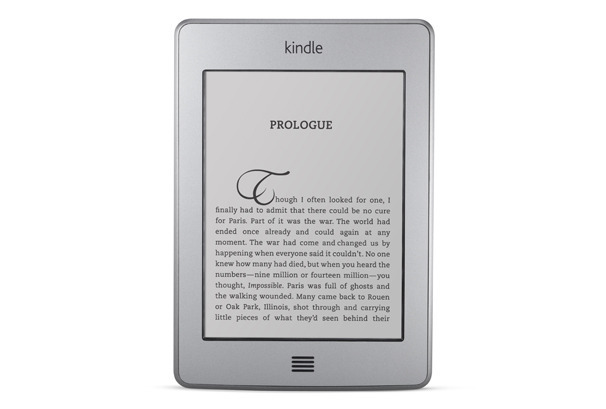
Kindle vs Kobo – Build
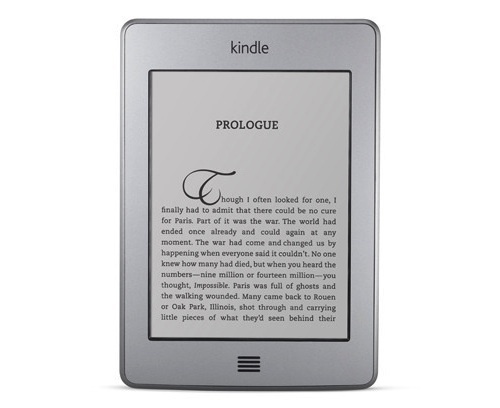
Finally, a Kindle that’s light, tough and cheap enough to read anywhere, except possibly the bath. Ditching the keyboard makes it the first truly pocket-friendly Kindle, although it also loses the 3.5mm jack and speakers for audiobooks, and there’s no 3G version.
The Kobo is almost identical to the Kindle in size and shape, at 185g to the Kindle’s 170g, but sports a silky, soft rubber finish to add a bit of grip for the more ham-fisted. The raised pattern on the back makes it particularly comfy to hold – more so than a real book, even.
Kindle vs Kobo – Screen
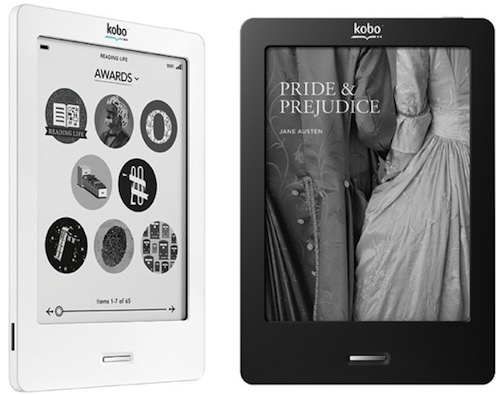
Amazon claims 10% faster page turns but in practice there’s little improvement from the Kindle 3G (now known as the Kindle Keyboard). Text is beautifully solid and crisp, and web images and PDFs render nicely, but the background is still a touch muddy.
With the Kobo, pages render slightly slower than on the Kindle, although they’re certainly not sluggish enough to stop you from reading at normal pace. Text and images are a match for the Kindle’s, which means they’re not quite as good as paper, but not far off.
Kindle vs Kobo – Controls

The page turn buttons feel plasticky but are perfectly located and have just the right action. The five-way pad feels equally Poundland but zips around the screen in a flash. The onscreen keyboard is slow, awkward and a nightmare to type on.
The Kobo has no physical controls bar a solitary Home button. Turn pages by tapping the left or right side of the screen, or by swiping across it.
Kindle vs Kobo – Storage

Cloud storage works well, backing up the internal 2GB with an archive of every book you buy; they can be re-downloaded over Wi-Fi in seconds. Without 3G or a keyboard, the ‘experimental’ browser is even less useful than before though.
While the Kobo has 2GB of storage onboard, only 1GB of it is actually available to you. The good news, though, is that you can upgrade the memory to 32GB via the microSD slot which also helps to make up for the lack of cloud storage.
Kindle vs Kobo – Reading

If it ain’t broke, don’t fix it. And if it is broke? Don’t fix it either. The home screen’s text-only lists are staler than a week-old Wotsit, but buying and reading books remains simple, smart and sensible, with real page numbers and speedy dictionary look-up.
An intuitive if rather boring interface makes buying books a cinch, and, unlike the Kindle, you’re not restricted to buying from just one site. But pressing the screen to turn the page can affect your grip – not a problem for the Kindle, with its side buttons.
Kindle vs Kobo – Price and Verdict

The Kobo Touch at £110 wins points for its touchscreen and design, but the Kindle is just a little better thought through. It’s not the most premium gadget, but its ease of use and Amazon integration keeps the Kindle in front.
You may also like
Nintendo Wii U could be getting ebooks
Pure Music goes live with free one-month trial


